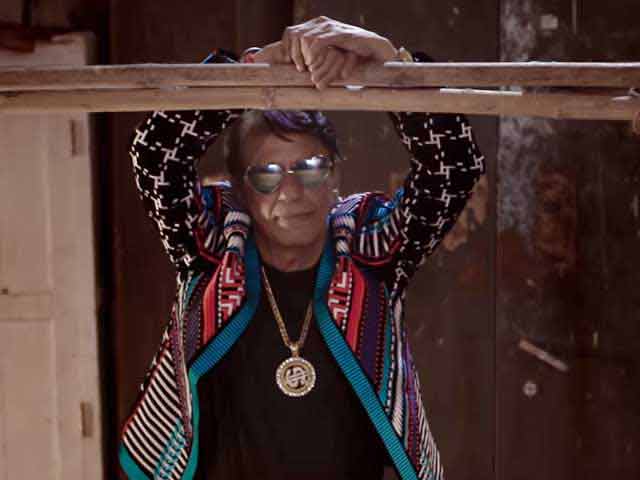Have you ever complained about the increasing pollution and wondered how we could potentially do something to make a change? Or have you ever thought about recycling but are not sure whether it is feasible to make it a proper career?
A lot of individuals are joining the recycling industry, and it seems to be a growing sector, what with recycling becoming the need of the hour. If you have any such thoughts in mind, about whether or not this is a career you can pursue, then Monisha Narke’s story can truly inspire.
For how long did you pursue a ‘regular’ work path before taking a diversion?
For eight years post my Masters in Industrial Engineering and Engineering Management from Stanford University, CA, I worked in the corporate sector. I came back to India in 2000 and joined my family business. After I became a mom, I took a 2 years sabbatical. This is when the seed of pursuing a green journey was sown and our social enterprise RUR Greenlife (RUR- Are you reducing, reusing, recycling?) was born in 2009.
Was there a way that you prepared for the future, did you have a plan? What prompted you to make the switch?

The journey to RUR Greenlife was a planned one. Post my higher education, I had always envisioned making a difference to society and contributing back to the community. The path evolved as time passed by and the problem of environmental pollution started bothering me. It was only when I had my first daughter and she started to get repeated attacks of a cough, that I became more conscious of our environment. I reached the peak of wanting to make a change when I visited my farmhouse in Umbergao, Gujarat — the one place that used to be so clean and evergreen had piles of waste and pollution. There was no place left to escape to anymore. I had to start somewhere – so I wrote my vision that the entire world is recycling. I decided to make our home greener. I learned how to compost my waste from home. Turns out, I could grow a melon out of it in my very own window grill from my first compost! I was excited to see the magic of nature. That’s when the idea struck — if just a little recycling could give me so much, imagine if we recycled more; that’s when RUR: Are you Reducing, Reusing, Recycling was born.
More and more people are now understanding and accepting the value of recycling. From a career point of view, what are the career and growth options in the recycling sector today? Or should it be something you do on the side, along with a regular job?
The recycling industry has always been around but has been highly unorganized. However, due to a change in lifestyle, increased consumerism and sudden rise in pollution, the recycling industry has evolved in response to environmental demands. Additionally, external factors such as United Nation Sustainable Development Goals 2030 and the Ministry of Environment and Forestry government mandates have brought about a positive change in the recycling sector and green alternatives.
Many job opportunities will be created in the near future in the recycling industries as the sustainable living and circular economy is becoming prime focus. Sustainability, environment, alternative materials for packaging are surely a great opportunity when looking at career choices for the future. At RUR, we have a team of people with engineering, microbiology, environmental sciences and management backgrounds.

What kind of planning should one do before making a switch in career? Is there some amount of research required?
Passion is the key to success. Loving the work you do and doing what you love keeps you happy and motivated towards your vision. Research, preliminary planning and meeting people in the same industry does help in having a clear understanding and devising approach to attain results. However, it is also about being in the right place at the right time. Having a degree in environmental sciences and relevant networking in the industrial space also helps occasionally. I would recommend volunteering with companies first in the area of interest to see the fit and then taking a plunge in the sector.
How is a typical workday for you? How do you strike a balance?
I start my day with 1 hour of tennis every morning which keeps me fit and energized for the day. I practice yoga thrice a week and eat healthy nutritious food. Gardening on my terrace and spending time on our organic farm 3 hours away from Mumbai keeps me connected with nature and inspired in my work. I also trek, cycle and swim which keep me stimulated. Daily meditation paves the path for a deeper sense of balance.
We have a young dynamic team who is charged up and takes up a lot of responsibilities to make way for me to focus on research, design, and growth of the company. I like to spend a lot of time with my kids and family and at times, involve them in the work I do, keeping the work-life balance.
It is obvious that what you do now is making you happy and satisfied. How important do you think this feeling is when you are in a work environment? Can satisfaction and happiness from work be a driving force that makes you work better and do more?
Self-Satisfaction, appreciation, and gratitude from everyone are key to accomplish your vision. Being grateful to what you have and what you are keeps you grounded and on the path of positive change and energy.
Work satisfaction plays a key role in bringing out the best from better! When your work is recognized, you get recharged to go to the next level. Last year I received an Entrepreneurship award for the business of cleaning and this year an international recognition from Solid Waste Management Association of North America (SWANA) for excellence in composting, which has encouraged us to develop and create newer technologies.
Recycling is indeed a growing industry, with future prospects of more openings and opportunities. If this is something that interests you, who knows, maybe it can be your true calling.














